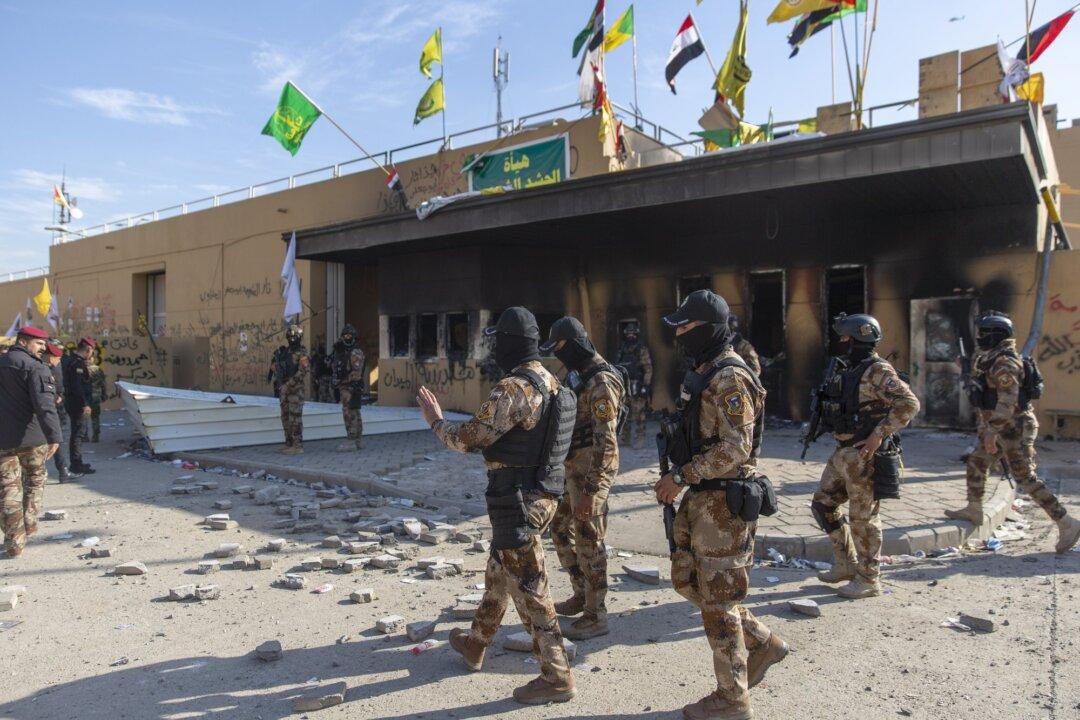Several rockets were fired towards the U.S. Embassy in Baghdad’s heavily fortified Green Zone on Nov.17, wounding at least two people, Iraq’s military said.
The embassy is located in the heavily fortified area that houses key government offices and other diplomatic facilities.




